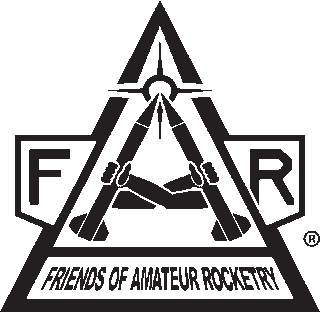DPF stands for a Dollar Per Foot
TCPF stands for Ten Cents Per Foot
The Rules are as follows:
- Open to US and Canadian Universities and Colleges only
- No High-Schools
- All team members must be current students or has graduated in the school year of the launch
- Each team must have a minimum of four team members
- Single-Stage Rockets Only
- No dropping tanks or other portions of the rocket
- Liquid Propellants Only
- No solids or hybrids or monopropellants.
- All DPF contestants must use liquid oxygen as an oxidizer.
- All TCPF contestants must use nitrous oxide as an oxidizer.
- Pressure Fed Rockets
- Must use commercially rated pressurant bottles.
- The commercial bottle must be filled to or below its commercial rating.
- Must be filled before or during propellant loading.
- Must utilize the Rocket Emergency Depressurization System (REDS) for LOX based rockets
- Must use Two-Stage Recovery
- Deploys drogue-parachute at apogee
- Deploys main-parachute below 1000-feet
- Deploying the main parachute at apogee will disqualify the team.
- Use two independent recovery electronics and battery
- Recovers Successfully
- Returns on main parachute.
- Returns with nosecone and drogue parachute tethered to the rocket.
- Sustains only minor damage.
- Fin broken off on landing.
- Rocket engine nozzle damaged on landing.
- No structural damage.
- The rest of the rocket must be in flyable condition.
- Rocket must have GPS/Telemetry to enable easy location of your rocket when it lands.
- If you can't find your rocket, you will not be given the DPF or TCPF money.
- Rocket must be rail or tower launched.
- No active control systems
- No movable fins
- No canards
- No TVC
- Launches must be performed at FAR Site.
- Launches must be attempted on a normal FAR launch Saturday.
- Some exceptions can be made due to bad weather or high attendance on FAR Saturdays
- Altitude must be determined by two commercially available recovery electronics.
- The altitude must be determined by the lowest altitude measured of the two.
- The rocket and rocket engine have not received the TCPF or DPF award before.
- Must meet FAR/Mars safety requirements.
- See FAR-Mars Safety Form
- FAR-Mars Safety Form must be presented before rocket is placed on the launch rail or tower.
- OPTION: The team can provide FAR with a complete set of the rocket design plans so that they may be shared with other student groups. If another student group successfully builds and launches this design, they will receive the one-dollar-per-foot prize AND the original design team will also receive the same one-dollar-per-foot amount!
- Launches requiring a new FAA COA.
- A predicted altitude over 250,000-feet.
- Launch team is responsible to acquire a new FAA COA.
- COA must be coordinated with FAR.
- Copy of COA must be sent to FAR two-weeks before launch.
- Registration
- Register through FAR Competition Registration webpage.
- Register two-weeks before launch.
- This registration does not substitute for a launch request.
- File a Launch Request two-weeks before launch.
- Currently there is no end-date for this contest.
- Register through FAR Competition Registration webpage.
Awards:
- DPF is $1 per foot of altitude above the end of the launch rail or tower.
- Payable to the launch team's school account
- TCPF is $0.10 per foot of altitude above the end of the launch rail or tower.
- Payable to the launch team's school account
